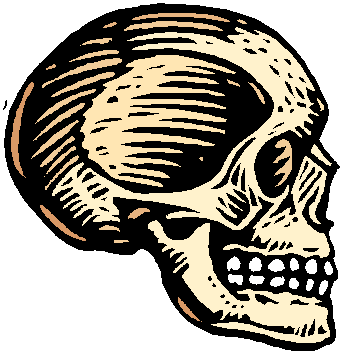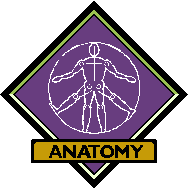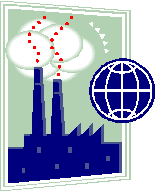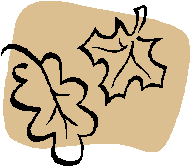click on icon to go to that website
|
||||||||||||||||||||||||||||||||||||||||||||||||||||||||||||||||||||||||||||
|
ANATOMY AND PHYSIOLOGY - BIOL 2114 Section 02
Spring 2012
Instructor: Joan
McKearnan
Office: S108
Phone numbers:
Office: 763-433-1232
Science secretary:
Sarah – 763-433-1549
E-mail:
joan.mckearnan@anokaramsey.edu
Website:
webs.anokaramsey.edu/mckearnan ; webs.anokaramsey.edu/biology/A&P
Office hours:
M-Th 11am-12noon, T 2-3pm, or by appointment; Open Lab M 9-11am
Lecture meeting time:
TTh 9:30-10:45pm
Required Textbook:
Saladin, K.S.
2010. Anatomy and
physiology: the unity of form and function, 6th
ed.
McGraw-Hill Co., New York, NY
Other required
material:
Lab materials
discussed in lab
Optional
Material:
McKearnan, J. E.
2011.
Anatomy and Physiology (BIOL2113)
McKearnan Lecture Notes.
(notes will also be made available on D2L) Mills, M. 2001.
Critical Thinking in Anatomy and Physiology, Biology 2113 Official communication:
Your e-mail
account registered in D2L is considered the official method of
communication in this course.
Please check it once a day for any announcements.
Desire to
Learn:
D2L will be used for recording grades, posting lecture notes & news
items, and depositing homework assignments if late.
General Course Goal/Major Concepts: We will continue on our pursuit of the knowledge of
the human body’s structure and functions by focusing on circulatory,
respiratory, digestive, urinary, and reproductive systems. We will be
examining the normal functioning of the body, but will also explore what
happens when the body does not function properly.
Meets MnTC Goal 3
Prerequisite:
Anatomy & Physiology I (BIOL2113) or equivalent - Grade “C” or better
Class activities: Class time will be a mix of
group activities geared toward self- and cooperative learning of simple
material and lecture on more complex material.
Students are expected to come to class having read the text reading
noted in the schedule.
There will be 7 quizzes based on reading
material indicated in the class notes.
Quizzes will be given to individuals first to make sure they come
prepared and then the group takes the quiz while discussing the
material. You will also
engage in small group discussions based on critical thinking questions
in the class notes. Lab will
include prepared dissections, dissection of selected organs, examination
of anatomical models and microscopic slides, physiological experiments,
and software exercises.
Questions and student participation are expected during lecture and
laboratory.
Grading: Lecture grade is
based on three lecture exam given during the lecture period and a
comprehensive final exam given Tuesday, 8 May, 7:30-9:30am.
Each quiz is worth 5 points for the individual portion and 5
points for the group portion for a total of 10 points per quiz.
Each critical thinking exercise is worth 15 points, 5 points for
individual effort in answering five questions and 10 points for the
group answers of two questions.
If a grade is borderline, e.g. 89.5%, the grade will be upgraded
only if the student shows effort (judged by attendance, promptness and
preparedness) and has at least one test in the higher grade
range. The grading
opportunities in lecture are:
3 lecture exams @ 90 pts. each
270 pts.
Final exam (150 pts.)
150 pts.
7 Quizzes @ 10 pts.
70 pts.
4 small group discussion answers @ 15 pts.
60 pts.
Total
550 pts. Your final grade will be the sum of your lecture and
80% of your lab grades (total = 814 points) and the letter grade will be
determined by the following percentage criteria: 90-100% = A
> 732.5 pts.
60-69% =
D
488-569.5 pts. 80-89% =
B
651-732 pts.
< 60% =
F
< 488 pts. 70-79% =
C
570-650.5 pts. Requests for taking this course Pass/Fail must be
made in the first 2 weeks.
Attendance and Absences:
“Eighty percent of success
is showing up.”
Woody Allen Attendance is expected in lecture and may be taken at
the beginning of each class period.
You are responsible for all material presented in lecture and
lab, including announcements, if you are tardy.
Make-up exams will be given only if a valid excuse is provided.
Valid excuses include religious holiday, sickness, a court
appearance, a death in the family, or direct participation in a
school-sponsored activity. I
reserve the right to ask for documentation for the excuse.
You must contact me prior to your absence, if
you want to make up the missed exam, quiz or assignment.
If you cannot reach me, leave a message with my voice mail or
secretary, or send an e-mail.
If you miss more than two labs you will get an automatic ZERO points in
lab. Make-up exams will be taken
no later than one week after the original exam date.
Late lecture and lab assignments will result in 10% decrease in
the total points for every day that the assignment is late and will not
be accepted more than five days after the assignment was due. Late
assignments should be submitted in D2L’s dropbox.
An
unexcused absence from a lecture exam, lab practical, or quiz will
result in a zero grade. Academic Integrity
- An exam or assignment conducted under dishonest
behaviors, e.g., cheating or plagiarism, will result in no credit for
that exam or assignment.
If you knowingly allow someone to copy an
exam or non-group assignment you will receive no credit for the exam or
assignment.
Exchange of information is allowed for group
work, but all written material for credit should be in your own words
or properly acknowledged.
Any subsequent act of academic dishonesty
will automatically result in an “F” in the course.
All incidents of academic dishonesty are
reported to the Deans of Students Services.
Accommodations -
Any disability accommodations should be discussed with the Director of
Access Services (433-1350).
Religious accommodations should be discussed with the professor at the
beginning of the semester.
Classroom Civility
– Students are expected to behave in a respectful manner in lecture,
including but not limited to coming to class on time, not leaving early,
turning off cell phones, not talking when professor or other people are
addressing the entire class, not coming to class under the influence of
alcohol or drugs, dressing respectfully, etc.
Anatomy and
Physiology II Lecture Schedule Spring 2012
Schedule is
tentative and any deviations will be announced in class. Last day to
withdraw from class is 18 April 2011
|
||||||||||||||||||||||||||||||||||||||||||||||||||||||||||||||||||||||||||||
|
ARCC home Joan's home Biology Department © Joan McKearnan 2007 Send comments to: joan.mckearnan@anokaramsey.edu Any views expressed on this page are strictly those of the page author or part of an educational activity and not those of Anoka-Ramsey Community College. Last revised: Wednesday, 11 April 2007
|
||||||||||||||||||||||||||||||||||||||||||||||||||||||||||||||||||||||||||||










